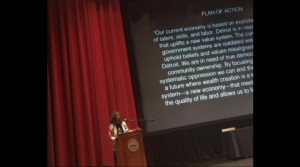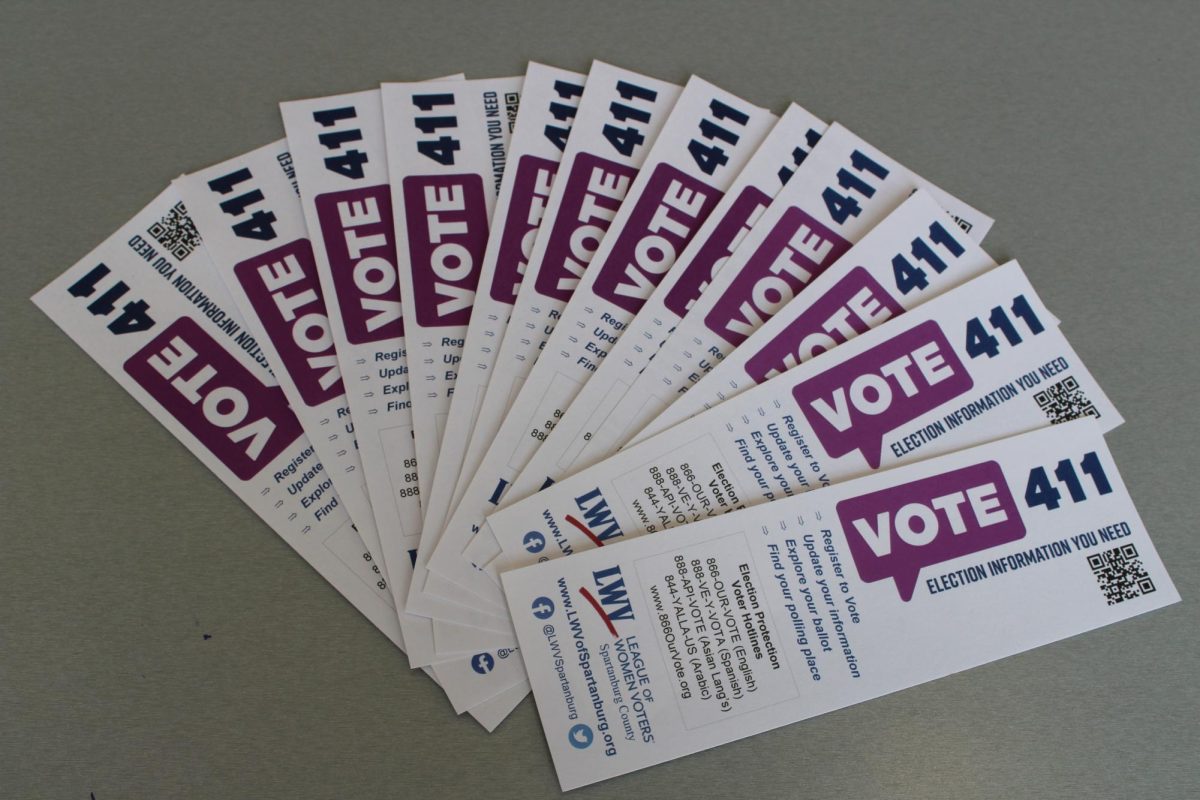By: Essence Buckman, senior writer

The events that occurred on Feb. 14 and 15 were mind-blowing for me and I walked away feeling a wave of positive energy that I am not familiar with feeling. That week was extremely fascinating because of what was introduced to this campus and I am so grateful to have experienced it.
Ingrid LaFleur and Jessica Scott-Felder were the highlight of the interesting and informative days that occurred on campus.
As I sat down after a lunch sponsored by the African/African-American studies program with LaFleur, I was able to interview both her and Scott-Felder on their presentations and feelings about their presentations.
I am well acquainted with Scott-Felder as she is a professor here and served on the committee for my A/AAS capstone project. Getting to speak with LaFleur was an honor as well because she has done so many things in her lifetime so far. To be not just an artist, but a black female artist who stepped into the political limelight to run for mayor and inspire people speaks measures.
As for Scott-Felder, to be a black female artist who is a part of implanting a change and opening up conversation regarding art and blackness at this predominately white institution speaks measures as well.
There I was, on the afternoon of Feb. 15, in the Holcombe room under Burwell, sitting before two black female artists making a difference in their own ways. Me, an aspiring writer and social-political activist, who can relate to a Black Arts movement, inspired.
I was curious about how LaFleur navigated her daily life being in the public eye, doing the things she loves and fighting for what she believes in. She mentioned that she was in a grieving state while running for mayor due to her father’s passing away. She decided that she wanted to wear sequins because she was sad and realized that she brought joy to so many people. She received that love and joy, and it helped her get back to her joyful self – it helped her heal.
“It’s important to be sensitive to energy we give in the world,” LaFleur said, “because it shapes our reality and conscience.”
Scott-Felder co-signed on that comment: “Loving. I think it helps black women the most.”
I took from that conversation the idea that I need to believe in what I do and try to give off positive energy no matter how I’m feeling, because it could impact a larger group of people, impacting something greater than myself.
With all the pressures in the world from self and others, and being a black woman who wants to have a career that many other black people wouldn’t consider “safe” because I’m not going on the route of being a doctor, lawyer, scientist or something similar – I want to be a writer and journalist, which goes along with arts and film. It can get stressful and discouraging at times.
Yet, I have Scott-Felder and LaFleur to look up to. “I enjoy pressure because it makes me work harder,” LaFleur said, “I want to be my best self.”
Those words resonated with me, the conversation following my interview with both women stuck with me when I left the room. I am glad to know and continue to know Professor Scott-Felder, and glad that she was an instrumental part in bringing LaFleur to campus. I felt this overbearing, joyful energy from sitting and talking with LaFleur, and for the thousandth time, I am grateful.
This has been and will forever be a memorable Black History Month experience, and Wofford experience in general. I think what they brought to Wofford will be instrumental in bringing the diversity of experiences and livelihoods that this campus needs to experience.
Both Scott-Felder and LaFleur agreed that its time for the people in this world to “Get right.” With the more impactful people we have like them, and hopefully like I can become, maybe we can get somewhere…
























